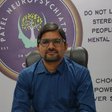Asked for Female | 12
Depression Following Leg Fracture
The effects of a birth control injection can't be washed out as it stays in your body for a specific duration, typically around three months. If you're facing problems, it's important to consult a gynecologist who can guide you on the best course of action for your situation. They can also discuss alternative contraceptive methods that might suit you better.
Answered By

Dr. Vikas Patel
Psychiatrist
Answered on 28th Aug '24
Asked for Female | 22
Quit Smoking Permanently with Medical Assistance
Smoking cigarettes has negative effects. You can stop with assistance and commitment. Medicines help make quitting manageable. Smoking harms your lungs, heart, and raises cancer risk. Nicotine patches or gum reduce cravings, fight withdrawal. Stick with prescribed dosages. Support from loved ones strengthens determination. It's difficult, but achievable with perseverance and help.
Answered By

Dr. Vikas Patel
Psychiatrist
Answered on 28th Aug '24
Asked for Male | 24
Why are my OCD thoughts repetitive?
Answered By

Dr. Narendra Rathi
Pediatrician
Answered on 27th Aug '24
Asked for Male | 22
Escitalopram Withdrawal: Symptoms and Timelines
You're dealing with withdrawal effects due to lowering your escitalopram dose. Your body got accustomed to a certain amount, so changing it leads to symptoms. Confusion, dizziness, and heaviness may occur when the medicine level drops. The positive side is that these effects typically resolve within weeks without intervention. Try relaxing, sleeping adequately, and consulting your doctor regarding gradually reducing dosage for better symptom management.
Answered By

Dr. Vikas Patel
Psychiatrist
Answered on 27th Aug '24
Asked for Male | 34
Have I Suffered From Anxiety for Years?
Anxiety means when you experience an excess of uneasiness or fright often, even when it is not a threatening situation. The signs may be anxiety, insomnia, or being on edge. Anxiety can be provoked by many factors such as stress or hereditary traits. To help the situation, you may either talk to a trustworthy person, go to the gym, or practice relaxation techniques such as deep breathing.
Answered By

Dr. Vikas Patel
Psychiatrist
Answered on 27th Aug '24
Asked for Female | 27
Can Anxiety Be Managed in Late 20s?
It seems you have already been dealing with anxiety for a while, it definitely can be a hard thing to do. Anxiety can make you feel nervous, scared, etc. It could occur due to stressful situations, genetics, or the imbalances of your brain chemicals. To cope with anxiety effectively, you have to open up about your feelings to someone you can trust, do relaxation exercises, work out regularly, and make sure to get enough sleep.
Answered By

Dr. Vikas Patel
Psychiatrist
Answered on 27th Aug '24
Asked for Female | 16
Can I Smoke After Panic Attack and Diazepam Injection?
The numbness of hands, feet, and mouth is the result of decreased blood flow in panic attacks. The effect of smoking on the body can make people suffer from panic attacks. Given the fact that you were prescribed diazepam at the ER, smoking might hurt it. Stay away from smoking as it is better for you. If you are in bad shape and have to, you can try a no-nicotine pack.
Answered By

Dr. Vikas Patel
Psychiatrist
Answered on 26th Aug '24
Asked for Male | 40
Struggling with General Psychology or Mental Health Concerns?
Answered By

Dr. Narendra Rathi
Pediatrician
Answered on 23rd Aug '24
Asked for Male | 30
Can I Help Reunite Your Family for Counseling?
Answered By

Dr. Narendra Rathi
Pediatrician
Answered on 23rd Aug '24
How to reduce adrenaline anxiety?
The inner glands produce adrenaline. Adrenaline is also known as the “fight-or-flight hormone.” It's released in response to a stressful, exciting, dangerous, or threatening situation. Adrenaline helps your body react more quickly. One can reduce adrenaline by activating relaxation response ( in contrast of fight and flight response) by doing meditation, yoga, playing a sport, listening to music ect. One can do relaxation exercises like Jacobsons progressive muscular relaxation, pranayam and through guided imagery.
Answered By

Dr. Ketan Parmar
Psychiatrist
Answered on 23rd Aug '24
Asked for Female | 21
2-Month Insomnia Issue: Exercise for Better Sleep
You mentioned trouble sleeping for 2 months. That's a long time - insomnia can feel exhausting. Many factors like stress, anxiety, and poor habits contribute. Simple exercises like deep breaths or light yoga before bed may improve sleep quality. Avoiding screens close to bedtime and maintaining a routine sleep schedule are also beneficial. However, if difficulties persist despite these efforts, seeking medical advice is recommended.
Answered By

Dr. Vikas Patel
Psychiatrist
Answered on 21st Aug '24
Asked for Female | 28
Why Am I Experiencing Anxiety, Dizziness, Palpitations, Depression?
Anxiety, dizziness, palpitations, and depression can be tough to deal with. You often feel anxious, which makes you worry a lot. Dizziness may feel like you're about to collapse, and palpitations are when your heart beats faster than usual. Depression causes you to feel sad frequently. These feelings can be caused by stress, lack of sleep, or health issues. To get support, try to calm your mind, maintain a regular sleep schedule, share your feelings with someone you trust, and consider therapy or counseling. These steps can help you manage your emotions better.
Answered By

Dr. Vikas Patel
Psychiatrist
Answered on 21st Aug '24
Asked for Kişi | 30
Will my anxiety medications harm me?
It’s totally okay to feel worried about the medications you’ve been given. Velaxin is for anxiety and panic attacks, Abizol and Zolomax are for anxiety and OCD. These drugs are generally safe when used correctly but can cause dizziness or drowsiness as common side effects. You must follow your doctor’s orders and tell them if anything strange is happening to you.
Answered By

Dr. Vikas Patel
Psychiatrist
Answered on 17th Aug '24
Asked for Female | 18
Waking Up Crying and Sleep Paralysis: Causes and Solutions
Sleep paralysis is a sleep disorder that makes you feel stuck. Your brain wakes up, but your body doesn't. This causes temporary paralysis which can be scary. You might feel afraid or confused. Seeing things move or crying are part of this experience. To reduce sleep paralysis, have a regular sleep routine. Go to bed at the same time each night. Avoid screens before bed. If it keeps happening, talk to a sleep specialist. They can guide you on what to do.
Answered By

Dr. Vikas Patel
Psychiatrist
Answered on 16th Aug '24
Asked for Male | 26
Post-illness Anxiety and Acidic Symptoms: Causes and Remedies
You had a tough experience, it seems. The symptoms like nervousness, sweating, throwing up, and difficulty sleeping could point to anxiety. Anxiety can sometimes cause physical signs including stomach issues. Try to calm down by taking deep breaths and avoiding spicy or acidic foods. If symptoms don't go away, speaking to an expert could provide more help.
Answered By

Dr. Vikas Patel
Psychiatrist
Answered on 16th Aug '24